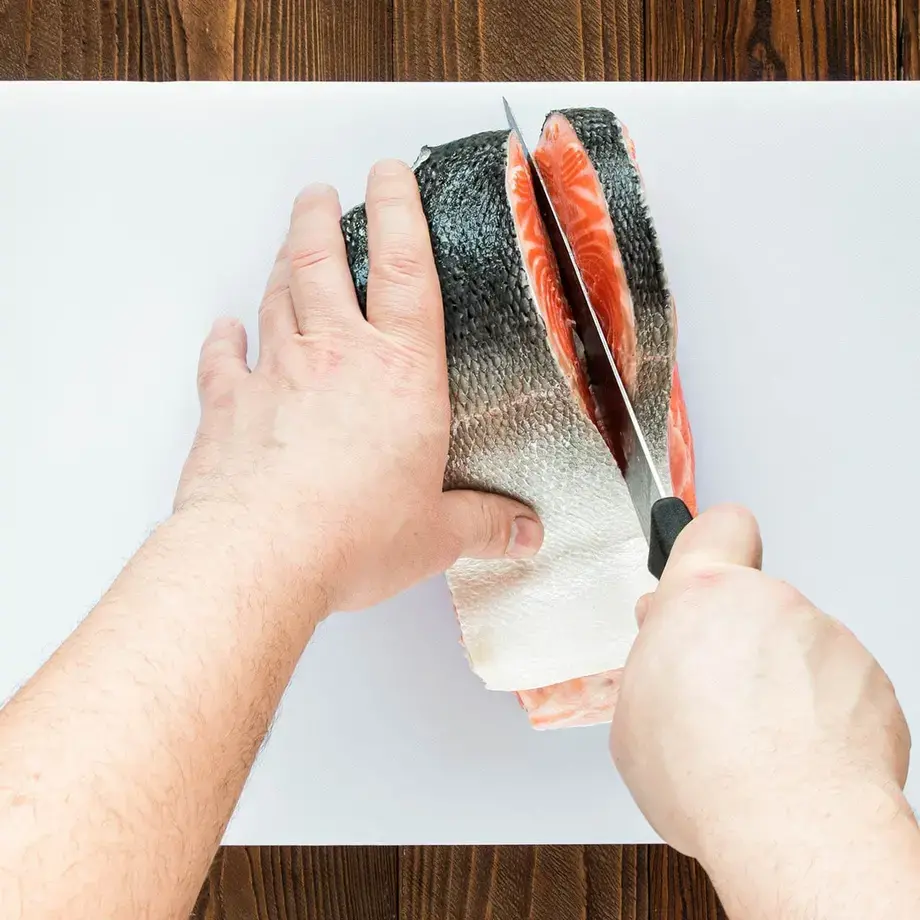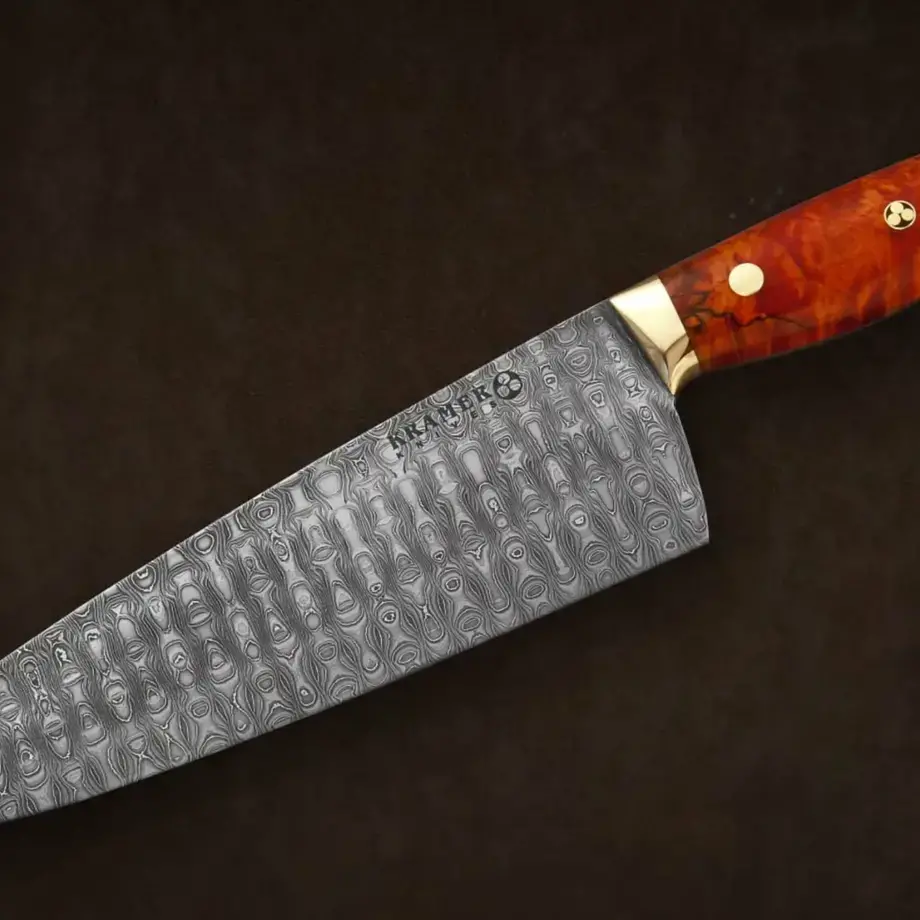The most obvious advantage of the ceramic knife is its ultra-sharp blade. It can go for years without needing to be sharpened, staying razor-sharp for up to 10 times as long as a steel blade, by some estimates.
Ceramic is a lightweight material, making it easier to manipulate than steel. It is faster and more efficient at delicate, precision knife work, cutting through vegetables like butter, and making light work of dicing something delicate like a tomato without bruising or crushing it. Some cooks also find this to be a drawback, however, as it means you need to apply more pressure and can lead to tired hands.
Ceramic is also an inert material, and will not react with other materials. This means that it will not rust or stain and is immune to corrosion caused by caustic or acidic foods. This protects your food as well as the blade, as steel knives can sometimes transfer ions to your food, leaving a metallic taste or smell, or causing sliced fruit to oxidise and turn brown more quickly.
Finally, ceramic is non-porous, so there are fewer places for bacteria to lurk. It also makes the blade easier to clean, and means that unpleasant smells won’t linger.
The major drawback to ceramic knives is that they can be quite brittle. Despite being made from tougher advanced ceramics, they are still more fragile than steel knives, and need special care to avoid chipping, or even breakages.
A ceramic knife cannot be used for jobs that require twisting or prying, or on anything hard, like frozen food or meat on the bone. It also requires a block so it doesn’t get chipped in the cutlery drawer, and should be washed by hand so it doesn’t chip in the dishwasher. Critics have suggested that a ceramic blade may need sharpening more often than you might think, to even out chipping, and there are also safety concerns regarding small shards of sharpened ceramic getting lost in your food.
While ceramic knives may need less sharpening than their steel counterparts, when the time does come to have them sharpened, it is a far more complicated process. A ceramic knife cannot be sharpened using a regular whetstone or honing rod, and if you want to sharpen it at home you will need to purchase specialist equipment. Many people send their ceramic knives away to be professionally sharpened, which can be costly and time consuming.
General care
Because they are more breakable than steel knives, it is a good idea to keep your ceramic knife in a knife block, so it isn’t rattling around loose in a cutlery drawer. You should avoid putting it in the dishwasher for similar reasons. Luckily, ceramic knives are easy to clean using warm water and a mild detergent.
Ceramic knives uses










